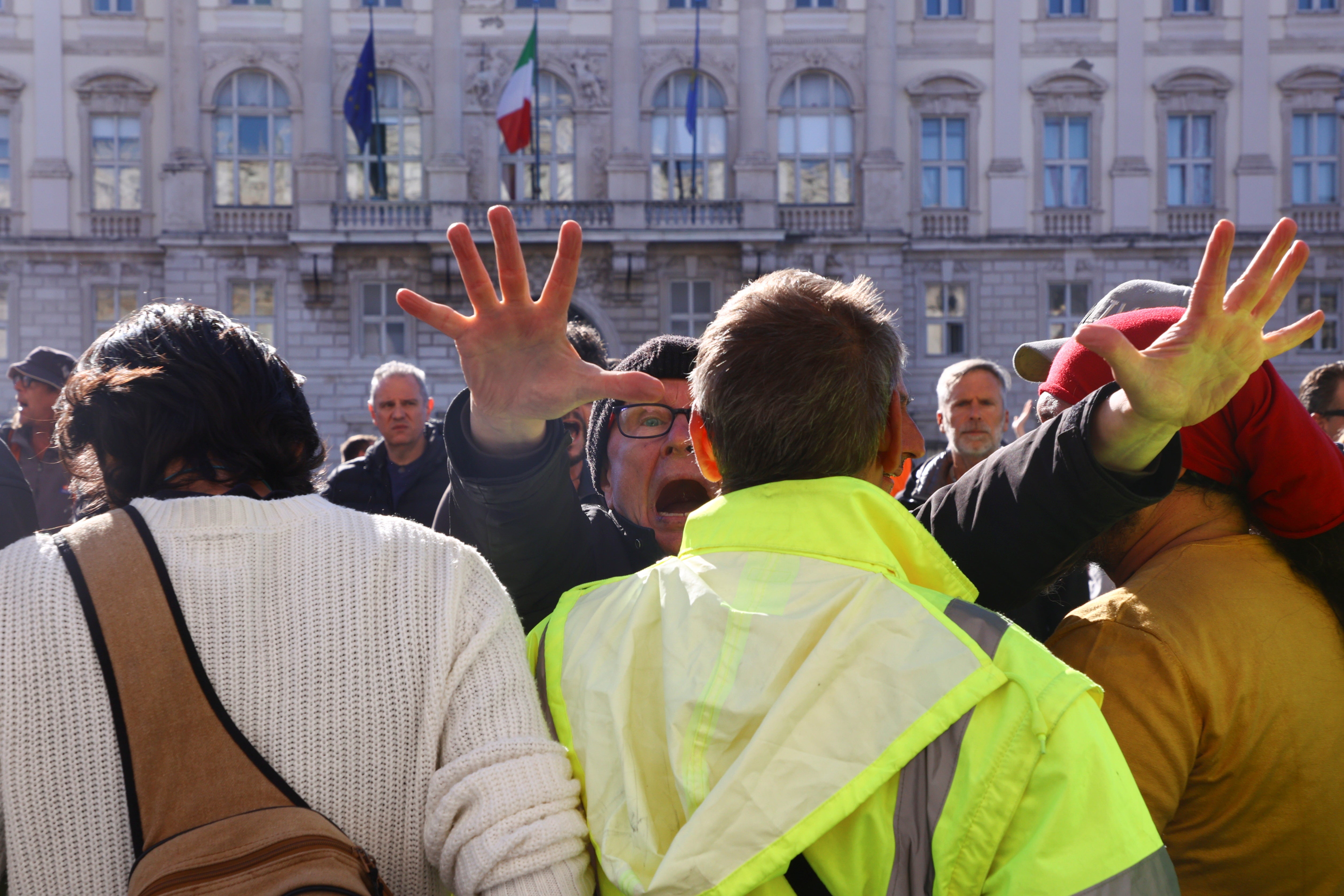‘Nothing short of a disaster’: Cuts to Trieste’s pioneering mental health system begin
A world renowned model for mental illness in under threat in northern Italy, reports Mark S. Smith

The right-wing regional government of north-eastern Italy has, as feared, begun dismantling its globally renowned system of community psychiatry, known as the “Trieste model”, widely celebrated as one of the world’s most successful models for recovery from mental illness.
Despite protests and petition signatures in their thousands, including many of the world’s most prominent psychiatrists, the local government in Trieste and its surrounding region of Friuli-Venezia Giulia has made good on previous threats to reduce the region’s mental health services in a plan that aims to make way for private investors.
Trieste has been a beacon of holistic psychiatry reform since the 1970s, under the leadership of the late and world-renowned Franco Basaglia. His work ultimately led to the abolition of all mental asylums in Italy.
Over the past 15 years in Trieste, rates of suicide, drug addiction, hospitalisation and homelessness have all plummeted. Dr Roberto Mezzina, a former director of mental health services in Trieste and now vice president of the World Federation for Mental Health confirmed that suicide rates have halved over the period, and that homelessness and hospitalisation rates are “significantly reduced” as a result of individuals being connected with various community organisations.
Meanwhile, drug addicts are helped and accommodated by the city’s health department during treatment and the extensive follow-ups, and are also found accommodation where required.
Basaglia’s work has been emulated in more than 30 countries, including parts of the UK – including at least half a dozen NHS trusts across England and Wales. Most recently, the Trieste model has been adopted in Poland and Czech Republic.
Basaglia established an integrated care model based on a network of 24-hour walk-in community mental health centres, from which he advanced his therapeutic principles of freedom and individualised recovery models, connected to the support of family, friends, neighbours and the community.
But despite the acclamation for his methods, Basaglia’s work is now being dismantled.
The regional government’s new policy on mental health – so-called Regional Resolution No. 1466/2, which was issued at the beginning of October – revealed plans to close seven of the 22 CMHCs throughout Friuli-Venezia Giulia, and to cut opening hours at the remaining centres. Dramatic staff cuts are also being considered. The revised policy also calls for doubling the number of general hospital beds for the mentally ill in Trieste.
The document also states: “The regional government has decided to cut the number top psychiatrists and department heads from ten to six. We are fully aware this will create apprehension among users and operators.”
The plans have horrified some experts. Dr Mezzina said: “This reduction of public mental health services in Trieste and Friuli-Venezia Giulia is nothing short of a disaster.
“The idea of shutting several of our centres, reducing hours and increasing the number of hospital beds is utterly anathema to the concept of community psychiatry and recovery.
“Their entire policy is not based on facts, but on right-wing ideology and the desire for authoritarian control over healthcare that ignores the needs of citizens. By bringing back the old system of hospital beds, long-term residential facilities and outpatient visits based on medication, they are creating a favourable environment for speculation and private capital.
“It has nothing to do with cost, Covid-19 or benefiting people with mental illness. There is a ghost haunting this region, whose goal is to undo the world’s most brilliant mental health services. We have built a world-class psychiatric recovery model here and we are appalled as we watch them dismantle it.”
More than 4,000 people have signed a letter of protest condemning the regional government’s moves, a list which list includes Tim Kendall, National Clinical Director for Mental Health for England.
The reforms have been advocated by the regional government of Friuli-Venezia Giulia, which incorporates Trieste. The region’s president is Massimiliano Fedriga of the far-right Northern League, which shares power with a coalition of right-wing allies.
Fedriga’s move against the ‘Basaglians’ is seen as part of the coalition’s fight against the left. His Assessor of Health, Riccardo Riccardi, has reportedly declared that he must “dismantle” a Basaglian “power system”. They also argue that cutbacks are needed because of the ravages of the Covid-19 pandemic in Italy.
Professor Sashidharan, of Glasgow University’s Institute of Health and Wellbeing, believes this is the moment for psychiatry professionals, as well as individuals with lived experience, to take a stand.
“What does a good mental health system look like? Where do mental health services accord with expert views and expectations of humane, person-centred and effective mental healthcare? The answer to these questions is Trieste – a model of psychiatric services that has provided a global reference point of good and effective care for more than 40 years,” said Professor Sashidharan.
“All of this is now under threat. Right-wing politicians in the region are seeking to dismantle the current services in Trieste, despite it being one of the most celebrated and progressive mental healthcare systems in the world.”
The regional government of Friuli-Venezia Giulia did not respond to requests for comment.






Join our commenting forum
Join thought-provoking conversations, follow other Independent readers and see their replies
Comments